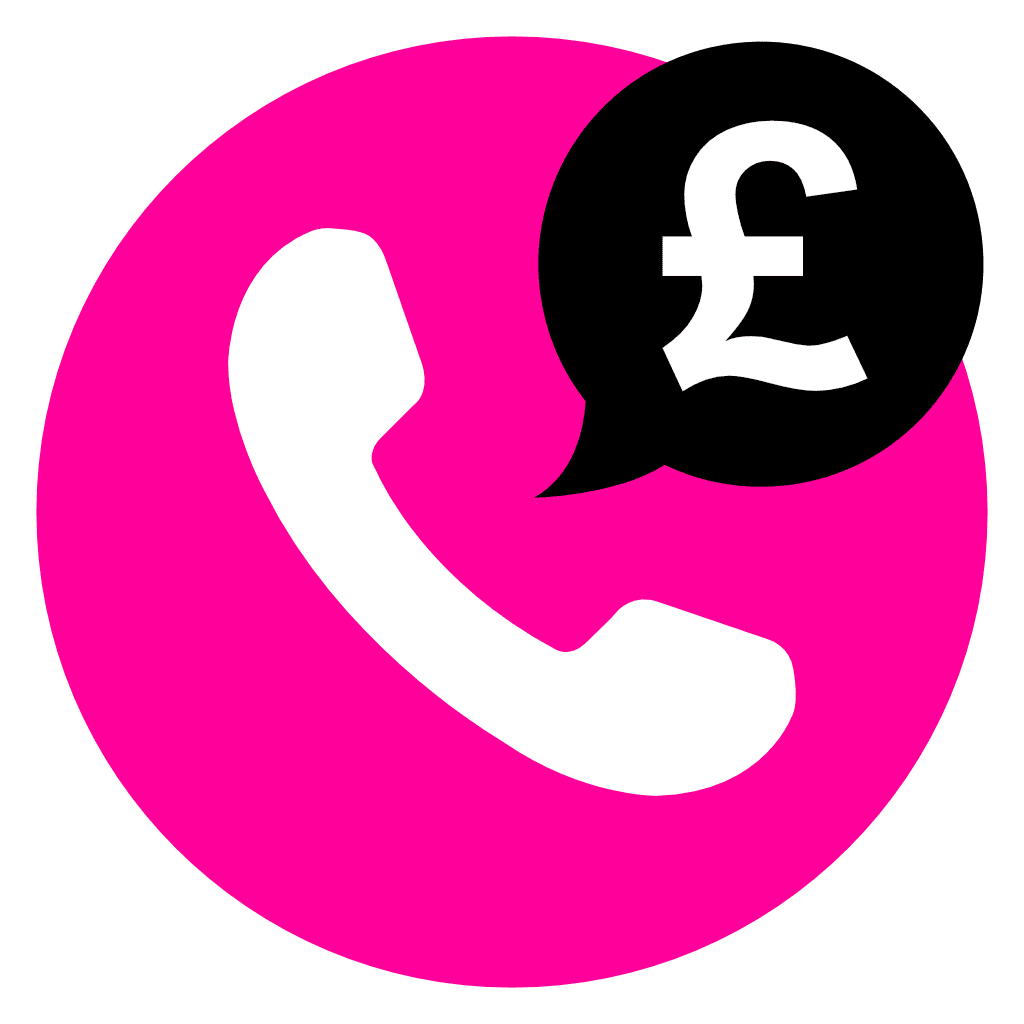When it comes to choosing the right business communication solution, UK companies must navigate a competitive market with numerous providers offering robust solutions. Two of the most prominent contenders in this space are Dialpad and RingCentral, both offering feature-rich VoIP and unified communications platforms. In this article, we’ll analyse the key features, pricing, and benefits of Dialpad vs RingCentral, helping you make an informed decision for your business.
Dialpad vs RingCentral
| Feature/Aspect | Dialpad | RingCentral |
|---|---|---|
| Core Features | AI-powered voice intelligence, unified communications, business SMS, voice recognition, web and mobile apps | Comprehensive communications suite, advanced video conferencing, third-party integrations, team collaboration, call analytics |
| Plans & Pricing | – Standard: £12/user/month – Pro: £20/user/month – Enterprise: Custom pricing | – Essentials: £8/user/month – Standard: £15/user/month – Premium: £22/user/month – Ultimate: £30/user/month |
| AI Features | Advanced AI for real-time transcriptions, sentiment analysis, and call insights | Lacks the advanced AI of Dialpad, but offers robust call management and routing |
| Integrations | Google Workspace, Microsoft 365, Salesforce, open APIs for custom integrations | Wide range of third-party integrations, including Salesforce, Slack, Microsoft Teams, Google Workspace |
| Video Conferencing | Included, but lacks advanced capacity for large meetings | Supports up to 500 participants, making it more suitable for large meetings and webinars |
| Call Management | Basic call routing, with transcription and keyword tracking | Advanced call routing, automatic call distribution (ACD), detailed call analytics |
| Team Collaboration | Unified communication platform, but lacks dedicated collaboration tools | Built-in task management, file sharing, and project collaboration features |
| Mobile App Support | Highly rated apps for seamless communication on the go | Offers mobile support, but with a broader range of collaboration features |
| Customer Support | 24/7 live support on all plans | 24/7 support across all plans, with enhanced support for Premium and Ultimate tiers |
| Security & Compliance | Standard encryption and security features | Enterprise-grade security with GDPR, HIPAA, and ISO 27001 certifications |
| Best for | Small to mid-sized businesses, especially those valuing AI and mobile solutions | Large businesses or those needing comprehensive communications and collaboration tools |
| Pros | – Cost-effective – Simple, intuitive interface – AI features improve productivity | – Comprehensive all-in-one solution – Scalable – Extensive integration options |
| Cons | – Fewer integrations – AI features may not be essential for all businesses | – Higher cost for advanced features – Complexity may overwhelm smaller businesses |
| Free Trial | Yes | Yes |
Core features comparison
Both Dialpad and RingCentral offer comprehensive VoIP and unified communication solutions designed for businesses of all sizes. Here’s a detailed look at their core features:
Dialpad
- AI-powered voice intelligence: Dialpad stands out for its AI capabilities, offering real-time transcriptions, sentiment analysis, and actionable insights during calls. This feature can be a powerful tool for sales and customer support teams, helping improve call quality and customer satisfaction.
- Unified communications: Dialpad’s platform includes voice, video conferencing, messaging, and contact centre solutions under one interface, making it easier for teams to collaborate without switching between apps.
- Business SMS and MMS: Users can send and receive SMS and MMS messages, allowing for flexible communication with clients who prefer texting over email or phone calls.
- Web and mobile app support: Dialpad offers a seamless experience across devices, with desktop and mobile apps that allow employees to stay connected and productive on the go.
- Voice recognition: The platform includes voice recognition for call transcription and keyword tracking, which can help with performance analysis and compliance.
RingCentral
- Comprehensive communications suite: RingCentral’s standout feature is its all-in-one platform that covers voice, messaging, video conferencing, team collaboration, and contact centre services. This suite allows businesses to streamline their communications efficiently.
- Integrations with third-party tools: RingCentral integrates with a wide range of business apps, including CRM tools like Salesforce, Slack, Microsoft Teams, and Google Workspace, enhancing productivity through easy workflow integration.
- Advanced video conferencing: RingCentral’s video conferencing solution is highly scalable, supporting up to 500 participants, making it an excellent choice for large meetings and webinars.
- Call routing and analytics: RingCentral provides advanced call management features such as intelligent call routing, automatic call distribution (ACD), and detailed call analytics, which can improve customer experience.
- Team collaboration: The built-in task management, file sharing, and project collaboration tools allow RingCentral to serve as a central hub for team collaboration, making it a more comprehensive solution for businesses that need robust internal communication tools.
Dialpad vs RingCentral pricing comparison
Dialpad
Dialpad offers three main pricing plans:
- Standard plan: £12 per user/month, which includes unlimited calling in the UK, SMS, integrations with Google Workspace and Microsoft 365, and 24/7 live support.
- Pro plan: £20 per user/month, adds integrations with Salesforce, APIs, and a 10-office limit on location support.
- Enterprise plan: Custom pricing, tailored for larger organisations with more specific needs such as advanced analytics and global support for over 10 office locations.
RingCentral
RingCentral’s pricing is tiered across four main plans:
- Essentials plan: £8 per user/month, for up to 20 users. Includes basic call management features, unlimited calls within the UK, and integration with popular apps.
- Standard plan: £15 per user/month, adds unlimited video conferencing for up to 100 participants, business SMS, and 24/7 support.
- Premium plan: £22 per user/month, which includes advanced call handling, CRM integration, and video meetings with up to 200 participants.
- Ultimate plan: £30 per user/month, which includes everything in the Premium plan and adds device status reports and analytics.
Ease of use
Dialpad: Dialpad offers a modern and intuitive interface, with AI integrations that reduce the administrative burden on users. Its mobile apps are highly rated for their simplicity, which makes it an appealing option for businesses with remote or hybrid teams. However, Dialpad’s advanced AI features may require a learning curve for some users, especially those unfamiliar with real-time transcription and analytics tools.
RingCentral: RingCentral’s platform is designed for flexibility and customisation, but its breadth of features can be overwhelming for smaller businesses or those unfamiliar with unified communications. That said, the interface is well-organised, and once teams are familiar with the platform, it becomes a central hub for all communications, especially for larger enterprises that require collaboration across different departments.
Customer support
Dialpad: Dialpad provides 24/7 customer support for all plans, but the availability of certain advanced features such as analytics and global support is limited to higher-tier plans.
RingCentral: RingCentral also offers 24/7 support across all plans, with more dedicated support available for Premium and Ultimate plan users. Its vast user base ensures that community support and resources are readily available.
Integrations
Both Dialpad and RingCentral offer extensive integrations, but there are key differences in approach:
- Dialpad integrates natively with Google Workspace, Microsoft 365, and Salesforce, while also offering open APIs for custom integrations. It is a great choice for businesses already deeply embedded in these ecosystems.
- RingCentral offers a broader range of integrations, including popular CRM, collaboration, and productivity tools. This gives it an edge for businesses that rely on a variety of platforms, making it easier to centralise communications within the tools they already use.
Security and compliance
Both platforms offer enterprise-grade security, including encryption for data in transit and at rest, along with features like role-based access controls. RingCentral, however, offers more advanced compliance certifications, such as GDPR, HIPAA, and ISO 27001, making it a safer choice for businesses with strict regulatory requirements.
Dialpad vs RingCentral pros and cons
Dialpad pros:
- AI-driven features enhance productivity.
- Simple, intuitive user interface.
- Strong mobile and remote work support.
- Cost-effective for small businesses.
Dialpad cons:
- Fewer integration options compared to RingCentral.
- AI features may be unnecessary for smaller businesses or industries.
RingCentral pros:
- Comprehensive all-in-one solution.
- Scalable for larger businesses and teams.
- Extensive integration options.
- Excellent video conferencing capabilities.
RingCentral cons:
- Can be overwhelming for smaller businesses.
- More expensive for advanced features.
Conclusion – Which is best for your business?
Choosing between Dialpad vs RingCentral largely depends on your business’s size, needs, and budget. Dialpad is a solid choice for small to mid-sized businesses looking for a cost-effective, easy-to-use platform that includes AI-driven features to enhance productivity. It’s particularly beneficial for businesses that rely on mobile and remote workforces.
On the other hand, RingCentral is ideal for larger businesses or those needing a comprehensive communications suite with advanced collaboration tools. Its vast integration options and scalability make it a long-term solution for growing enterprises, but it comes at a higher cost.
Ultimately, if you value AI tools and simplicity, Dialpad might be the best fit. If you need a fully integrated, scalable solution, RingCentral is the way to go.
Both platforms offer free trials, so we recommend taking advantage of this to see which solution works best for your team before committing.
Dialpad vs RingCentral FAQ
Dialpad has the edge with its AI-powered voice intelligence, offering real-time transcription, sentiment analysis, and actionable insights. RingCentral does not have the same AI focus but provides strong call management and routing features that are still valuable for large-scale businesses.
Dialpad is generally more affordable, with plans starting at £12 per user/month, making it attractive for small to mid-sized businesses. RingCentral starts at £8 per user/month, but its more feature-rich plans can cost significantly more, especially for businesses requiring advanced functionalities.
RingCentral offers more advanced video conferencing features, supporting up to 500 participants. Dialpad includes video conferencing, but it lacks the capacity and scalability that RingCentral offers, making RingCentral a better choice for businesses needing large-scale virtual meetings or webinars.
Yes, both Dialpad and RingCentral have mobile apps that allow users to stay connected on the go. However, Dialpad’s mobile app is especially known for its simplicity and ease of use, while RingCentral’s app is more feature-rich, supporting collaboration tools like messaging and file sharing.
RingCentral offers a wider range of third-party integrations, including Salesforce, Microsoft Teams, Google Workspace, and more. Dialpad also integrates with Google Workspace, Microsoft 365, and Salesforce, but RingCentral has the advantage in terms of its broader compatibility with different platforms.
Dialpad is better suited for small to mid-sized businesses, offering affordable pricing and AI-driven features that enhance productivity. RingCentral, while feature-rich, may be overkill for smaller companies, especially given its higher-tier pricing for more advanced features and collaboration tools.
RingCentral provides more extensive collaboration tools, including task management, file sharing, and team messaging, making it a better choice for companies needing a unified platform for internal communication. Dialpad focuses on communications but doesn’t include the same breadth of collaboration features.
RingCentral is more scalable, offering solutions for businesses of all sizes with extensive features and higher participant limits for video conferencing. Dialpad, while scalable, is more focused on providing a simpler solution for small to mid-sized businesses rather than large enterprises with complex needs.
Yes, both Dialpad and RingCentral provide 24/7 customer support for all users. However, RingCentral offers more tailored support for businesses using its Premium and Ultimate plans, which include advanced analytics and more complex call routing options, ensuring businesses get the help they need.
RingCentral has stronger security credentials, including GDPR, HIPAA, and ISO 27001 certifications. While Dialpad provides standard encryption and security features, RingCentral is better suited for businesses with strict compliance requirements, especially in regulated industries such as healthcare or finance.

